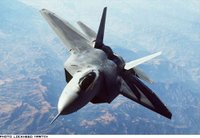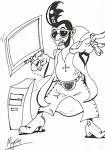'He who confront'
By Peter Goodspeed, National Post
In a region familiar with despotism, Saddam Hussein, whose name in Arabic means "he who confronts," was one of the most ruthless and violent dictators in the Middle East's bloodstained history.
He subjected Iraq to his will for more than 30 years of informal and formal rule. He attacked his neighbours, raised the world's fourth-largest army and relentlessly sought to arm it with weapons of mass destruction.
Raised by a poor peasant family in a mud hut in a small village dominated by tribal loyalties, Saddam aspired to a life of riches, opulent palaces and power.
In public, he presented an image of a fastidious family man, while in private he indulged his every whim and selected nightly partners much like Sultan Sharyar in The Thousand and One Arabian Nights.
A master at using fear to command obedience, Saddam sought to become an Arab hero and entertained visions of leading his people to new glory. Instead, he repeatedly led them to disaster.
He murdered tens of thousands to maintain his regime and condemned millions more to death in three unsuccessful wars.
The Iraqi leader was a master of brutal reprisals. In 1990, when Lieutenant General Omar al- Hazzaa, a military advisor, was overheard criticizing Saddam, he was immediately sentenced to death. Before the execution, Saddam ordered the man's tongue cut out. The general's son was also executed and his family's home bulldozed.
On another occasion during a Cabinet meeting, Saddam is said to have drawn a pistol and shot dead a minister who had dared to question his strategy.
Born in al-Awja, just east of Tikrit, in north-central Iraq, Saddam grew up in the impoverished village after his father abandoned the family just before Saddam's birth.
Saddam had a harsh and brutal childhood. His stepfather was a cruel, illiterate peasant who beat him and called him the "son of a whore."
The boy did not go to school or learn to read until he was 10 and did not finish the equivalent of grade school until he was 16. Later, when he wanted to become a soldier, he was unable to enter the Baghdad Military Academy because he was such a poor student. Once he became a dictator, Saddam compensated for those setbacks by appointing himself lieutenant-general in 1976, then promoting himself to field marshal after he became president in 1979.
Despite his lack of formal military training, Saddam insisted on personally directing his wars against Iran, the UN Gulf War coalition and the U.S.-led coalition that finally toppled him.
As a youngster desperately searching for an identity and a sense of family, his chief role model was his uncle, Khayralla Tulfa, a former army officer and ardent Arab nationalist who had been expelled from the military for participating in a failed uprising. When he started school, Saddam went to live with his uncle and eventually married his daughter, Sajida, who remained his wife for 40 years. They had two sons and three daughters.
While still in school, Saddam joined the clandestine Baath party. One of his first roles was to organize fellow students into a gang to intimidate political rivals.
By the time he was 21, Saddam was implicated in the murder of one of his uncle's political rivals -- a cousin who was the Communist party chief in Tikrit. He was jailed briefly on suspicion of murder, but released for lack of evidence.
Within a year, he was involved in the attempted assassination of then Iraqi leader, General Abdul Karim Kassem.
Saddam was the leader of a four-man hit squad that botched the assassination so badly some of the would-be killers shot each other. Saddam and his intended victim were the only survivors. Saddam carved a bullet out of his leg and fled to Syria. Later, he went into exile in Egypt, where he was infatuated by General Abdul Nasser's appeal to Arab nationalism.
He returned to Iraq in 1963, when the Baath party staged a coup. But he was jailed within months when right-wing military leaders seized power from the Baathists.
By 1966, one of Saddam's older cousins from Tikrit, Ahmad Hassan al-Bakr, had become president and chairman of the Baath party's Revolutionary Command Council. When Saddam escaped from prison, his cousin made him party vice-chairman and gave him responsibility for north-central Iraq, including his hometown.
By 1968, the party had once again seized power in a coup and Saddam's cousin became president. The then 31-year-old Saddam automatically became the power behind the throne. As deputy, he created a ruthless new state security system that answered to no one but himself. Enemies were eliminated, unfriendly factions in government were intimidated into silence and Saddam's reputation as a man to be feared grew.
Saddam extended his grip on power by appointing relatives and allies to key government and business posts. Then, in 1978, it became illegal -- punishable by death -- to belong to an opposition party. The following year, Saddam forced his cousin, General Bakr, to resign and assumed the presidency himself.
Shortly after he took office, Saddam purged the Baath party of all potential rivals by murdering dozens of officials he suspected of disloyalty. In a bloodchilling episode, Saddam invited all the members of the Revolutionary Command Council and hundreds of other party leaders to a conference hall in Baghdad. Then, dressed in a suit and
smoking a cigar, he announced he had uncovered a Syrian plot against his government.
Within minutes, the acting secretary-general of the Baath party was dragged from behind a curtain and began to confess his involvement in the alleged coup. As he spat out the names of coconspirators in the audience, they were dragged away to be executed. In one fell swoop, Saddam eliminated 66 rivals and injected Iraq with an atmosphere of fear that lasted two decades.
His ambition turned almost inevitably to dreams of conquest, leading ultimately to the defeat of Iraq and his own capture. In a series of massive miscalculations, he launched a war with Iran, then later invaded neighbouring Kuwait. Both invasions ended in disaster.
The war with Iran dragged on for eight years and killed more than a million people before Saddam reluctantly accepted a ceasefire that changed nothing in terms of the disputed boundary along the Shatt al-Arab waterway between the two countries.
But his army had grown steadily, with conscription and modern weapons, until it was the fourth-largest in the world. Saddam had an arsenal of Scud missiles. He had launched a sophisticated nuclear weapons program and used chemical and biological weapons in battle.
Undaunted by his failure in Iran and desperate to redeem his reputation as a great commander, Saddam invaded oil-rich Kuwait and tried to turn it into a province of Iraq in 1990. Like Hitler in Czechoslovakia half a century before, Saddam did his best to confuse the issue before he invaded, producing a long string of grievances and territorial claims to justify his actions.
But he failed to convince his Arab neighbours or the Western states who had previously acquiesced in his aggression toward Iran. Then he compounded his blunder by bracing to face a U.S.- led UN coalition in the "Mother of all Battles" instead of simply withdrawing from Kuwait.
Oblivious to his impending defeat, Saddam told CNN television he was prepared to endure weeks of bombing by the most powerful military force in the world.
"Whoever has God on his side never gets defeated," he said in an interview.
Weeks later, as his armies reeled in retreat from Kuwait and bombs rained down on Baghdad, Saddam ordered the Kuwaiti oil fields set on fire and sabotaged the country's oil pipelines.
In defeat, Saddam remained defiant and sought Arab support as the only Middle East ruler willing to stand up against both Israel and the United States. He offered a bounty to the families of Palestinian suicide bombers and ordered an Iraqi hit squad to try to kill former U.S. president George H. W. Bush in a car bomb attack while he was visiting Kuwait in April, 1993. Two months later, president Bill Clinton ordered air strikes on Iraqi intelligence headquarters in response.
In the meantime, international economic sanctions, imposed on Iraq to force its disarmament, continued to devastate what little of the country's infrastructure had not been destroyed in the war. Infant mortality rates soared. But Iraq continued to defy UN weapons inspectors and tried to manipulate the images of children dying in poorly equipped hospitals to win international sympathy.
The UN introduced an "oil-for- food" program that allowed Iraq to sell small amounts of oil on international markets to provide people with basic foods and medicines. But the elite continued to have access to luxuries and military spending continued to climb.
Saddam continued to build and furnish dozens of new "presidential palaces" but refused to allow UN weapons inspectors access to them.
He repeatedly accused the inspectors of spying for the United States and Israel.
But in 1995, after a shootout with Saddam's eldest son, Uday, two of Saddam's sons-in-law defected to Jordan and began to reveal secrets about Iraqi weapons programs the UN inspectors had not even suspected.
They said Saddam had been closer to building a nuclear bomb than anyone had thought and that he had enough biological and chemical warfare agents to wipe out hundreds of thousands of people.
Both men were immediately killed after Saddam persuaded them to return to Iraq.
By mid-December, 1998, UN weapons inspectors had left Iraq, claiming they could no longer do their work because of Iraqi resistance.
Still, Saddam continued to defy the West and methodically plotted to rebuild Iraq's military.
After the 9/11 terror attacks, the U.S. government was no longer prepared to tolerate a possible new terrorist threat from Iraq. Pentagon planners began to plot Saddam's downfall.
Outgunned and outmanoeuvred, Saddam nevertheless continued to manipulate the UN inspections process and displayed considerable diplomatic skill at splitting his opponents as he repeatedly reversed course and offered and then withdrew minor concessions.
But Saddam's diplomatic dancing, displays of defiance and macho rhetoric accomplished little. He immediately became a target as soon as a U.S.-led coalition invaded Iraq from Kuwait in March, 2003.
His regime collapsed beneath a blizzard of satellite-guided bombs and cruise missiles and he was forced to go into hiding as Iraqis began pulling down his statues all over the country.
In the weeks before his capture in December, 2003, his retinue had dwindled to just a handful of trusted aides, but he continued to try to defy an enemy he could never defeat -- the military forces of the United States.
At the end of the year, he was pulled bedraggled from a hole in the ground by U.S. troops. The man who claimed he would go down fighting was captured without firing a shot.
Imprisoned for the past three years at Camp Cropper, a U.S. base not far from one of his former palaces, Saddam was sentenced to death by an Iraqi court in November after a year-long trial over the killings of 148 Shiites from the village of Dujail in 1982.










